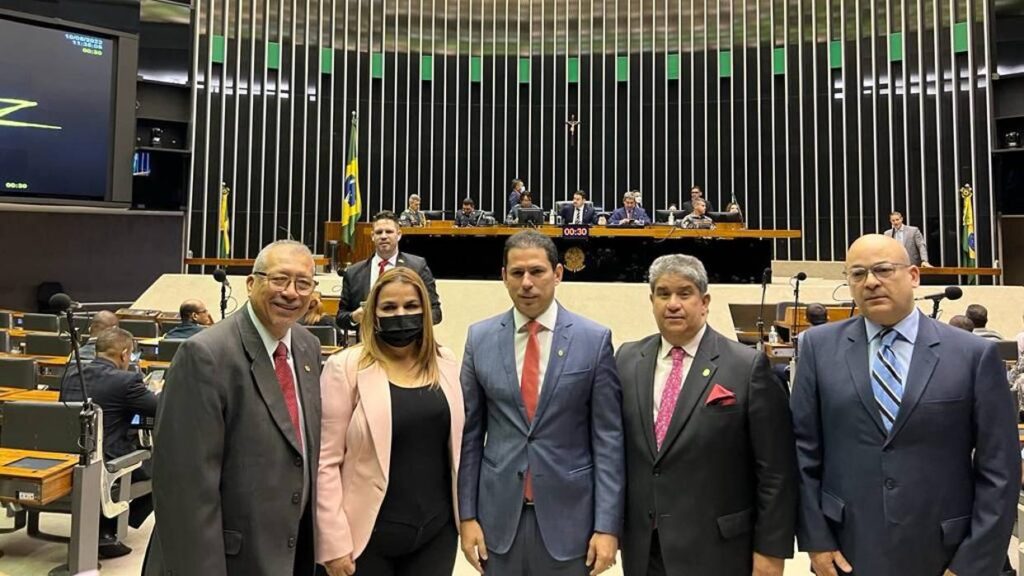The heads of the Télam agency and Public TV, Bernarda Llorente and Rosario Lufrano, and the artistic deputy manager of Radio Nacional, Gustavo Campana, analyzed the informative treatment that the dictatorship imposed on the Argentine media’s coverage of the Malvinas War, by share a public talk that reviewed processes and recalled historical facts to expose the contradictions and weaknesses of the military commands in their communication policy.
In an activity organized by Télam in its space at the Book Fair, the three journalists addressed the disinformation strategy used by the dictatorship headed by Leopoldo Fortunato Galtieri to manipulate Argentine society during the war, from different perspectives, which Llorente summed it up in three aspects: strict censorship, the support of some media outlets for the military’s editorial line due to ideological affinity, and the commercial logic of news companies..
“In Argentina, censorship coexisted with interests and businesses, selling photos and information to international news agencies that affected the image of the dictatorship”Bernarda Llorente
Lufrano, to start the talk, recalled the journalistic lock that the dictatorial terror had imposed from its first day, with the communiqué 19 of the Board, which established “detention for an indefinite period” for those who “by any means spread, divulge or propagate news , communications or images, with the purpose of disturbing, harming or discrediting the Armed Forces”.
? IT STARTS NOW in the Espacio Télam of the Book Fair (@fairbook) the talk about Malvinas and the media, with Bernarda Llorente (@bernardallorent), Rosario Lufrano (@rosariolufrano) and Gustavo Campana (@gustavowcampana)
? Follow her on https://t.co/Uui0LVqGGq pic.twitter.com/t8Oa5TCMny
—Telam Agency (@TelamAgency) May 13, 2022
Llorente, for his part, focused on the changes that occurred in “the specific media strategy” as the war progressed.
He then pointed out that after the landing on April 2, the media objective of the dictatorship was to convey that there was a presumed “normality” on the islands, while with the arrival of the British fleet in the South Atlantic and the start of the fighting “the war begins to be attractive and the ratings and circulation of the magazines begin to grow, because it becomes a business”, an opportunity even to enrich oneself, as happened with the sale of photos abroad.
“In Argentina, censorship coexisted with interests and businesses, selling photos and information to international news agencies that affected the image of the dictatorship,” remarked the president of Télam, and personally said that in 1982 she was exiled with her mother in Mexico and that the distance made it easier for her to observe the events from a “more nuanced” perspective, summed up in a phrase from human rights organizations: “The Malvinas are Argentine, the disappeared too.”

Campana, the third speaker, provided a federal vision by stating that for Argentine society it was not the same to follow the war from the country’s capital as to experience it from the province of La Pampa to the south, in Patagonia, “where the war was meat and bone”he pointed out, in contrast to the look of “the eyes of Buenos Aires”, which he considered represented by a phrase from a contemporary song by Charly García: “Don’t bomb Barrio Norte.”
According to Campana, the information manipulation matrix of 1982 was based on what the dictatorship had done since March 24, 1976, starting from the “domination of the entire radio dial and the function that Papel Prensa fulfilled to control the newspapers.” , but also some media outlets, out of their own conviction, joined in with an additional role, such as “the weekly papers of Editorial Atlántida, the flagship of that manipulation with its enormous editorials.”
In disseminating the triumphalist narrative about the conflict, he added, the Armed Forces also used the “positive” format that the US advertising agency Burston Mastaller had developed to try to counteract the complaints of human rights violations that were repeated in the world and defend the images of the dictator Jorge Rafael Videla and the then Minister of Economy, José Alfredo Martínez de Hoz.

From the international level, Lufrano made an analogy between Galtieri and Margaret Thatcher, because both “tried to save their governments with the war”, which the conservative premier achieved in her country, while Llorente shredded the media’s coverage of the war European countries in which -except for Spain, due to the issue of Gibraltar- he observed a “generalized defense of its colonial interests” and an editorial alignment and coordination with London.
? Télam Space at the Book Fair (@fairbook)
? Followed live by https://t.co/Uui0LVqGGq the talk about Malvinas and the media, with Bernarda Llorente (@bernardallorent), Rosario Lufrano (@rosariolufrano) and Gustavo Campana (@gustavowcampana) pic.twitter.com/qkrVaQfwUx
—Telam Agency (@TelamAgency) May 13, 2022
Regarding the role of the public media in 1982 and today, another of the topics of the talk, the three pointed out that Télam and Channel 7 -today Public TV- were the only media present on the islands at the time of the fighting: This allowed greater control of what arrived on the continent, and “posts were even established to control or fix information” in different parts of the country, Lufrano reconstructed.
“That fictitious, absurd war had two objectives, inwards and outwards. That is why the repression when the surrender is announced… That was a reaction against the media. Everything was fine until yesterday and now you are talking to me of surrender?”, synthesized Campana when referring to the disenchantment and anger that the news that the war had been lost produced in the country.

And about that fracture between the media and their audiences, which for millions of Argentines came from the hand of disappointment, he added: “With three days to go before the surrender, it seemed that the Argentine forces were stronger than ever.”
With interventions in shifts based on the questions of the moderator, also a journalist Felipe Celesia, the representatives of the public media agreed that the Malvinas issue – indicated Llorente – represents “an uncomfortable subject for the Argentine elites”, above all because the claim of sovereignty “leads us to clash in some international forums” with the United Kingdom, and that defense of national interests “leads us to question colonization in the broad sense of the term”.
? Télam Space at the Book Fair (@fairbook)
? Bernarda Llorente (@bernardallorent), Rosario Lufrano (@rosariolufrano) and Gustavo Campana (@gustavowcampana) talk about Malvinas and the media
? I followed the transmission by https://t.co/Uui0LVqGGq pic.twitter.com/eYZ6VTNbmh
—Telam Agency (@TelamAgency) May 13, 2022
At that point, Lufrano recalled a statement by the head of the PRO, Patricia Bullrich: “Today you have the supporters of that colonialism saying directly that we have to hand over the Malvinas. And they tell you sitting on a television channel! It’s brutal to hear it like that,” he confided, and then linked those positions with others that state that the existence of public media “doesn’t make any sense.”

“In Europe, this discussion is settled,” Llorente said at the time. “No one disputes the role of state media, not even in the US, paradoxically. Because what is very clear is that given the commercial and business logic of many private media, media concentration and digital concentration, the state media are fundamental, because in addition to being plural and diverse, they have to represent the diversities of an increasingly segmented society,” he added.
Regarding the role of the public media and the Malvinas, Campana finally recalled that “the first and beautiful responsibility and obligation is to comply with the constitutional mandate, which since the 1994 reform has forced us to claim sovereignty.”


















